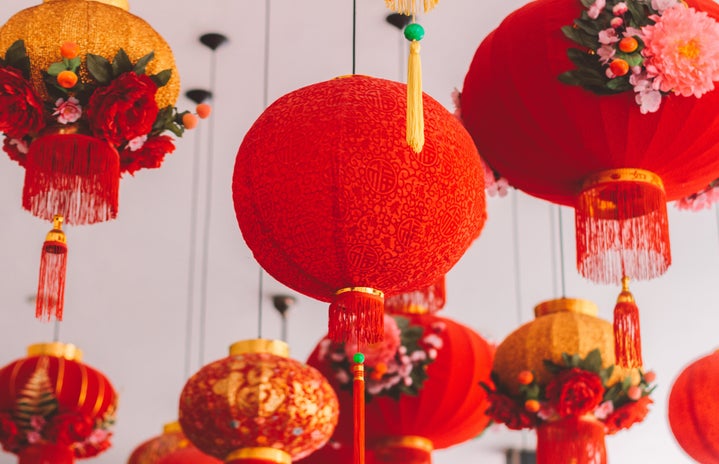I recently watched Disney’s and Pixar’s film, Turning Red, and loved it! It’s a movie about a girl who is faced with transforming into a fluffy red panda when her emotions are high. As a Disney fan myself, I found the film visually captivating and hilarious. What I didn’t expect from a movie about a teenage girl stuck in the body of a giant red panda was that it hit close to home… even if i’m basically a kid trapped in a 21-year old human body.
Here’s some interesting things I found from the movie:
THE MOVIE’S VISUALS (AND BOYBAND) ARE EYE-CATCHING:
The movie’s opening sequence is what got me instantly hooked to the plot. It depicts it’s protagonist, Mei Lee, breaking the 4th wall and telling us how perfect and remarkable her life is as a thirteen-year old girl while walking to school. She is banded with her friends and they fangirl over the movie’s prominent fictional boyband, 4*TOWN, together. All of this is of course happening with catchy 90’s R&B in the background which takes some viewers back to their childhoods. Speaking of the 90’s, the movie includes many references to it starting from Mei Lee’s Tomagachi, bucket hats, Nightfall (a.k.a Twilight), butterfly clips, anime, boybands, and much more. The movie references to other Disney works such as the Simpsons, the pixar short Purl, and Disney Channel movies like Luck of the Irish or Wendy Wu.
I really liked the how the movie hones down on Mei Lee’s process of emotions through its lighting and animation. During these moments, the lights only shine on her and add colors relating to her emotions. When paired with the animation like when. One example is when Mei Lee finds her mom spying on her outside her classroom window during school. The camera shifts onto Lee sweating and internally panicking under a red spotlight. It was in this moment that the animators are able to show how Mei Lee is turning red, or facing huge rush of emotion that will later turn into a huge red panda.
My favorite detail in the film has to be the characters’ anime eyes whenever their gazes land on something or someone cute. Characters’ eyes immediately widen and are filled with stars and hearts to sparkle with admiration. It’s a tiny detail that acts as both a reference to drawing styles of manga and a depiction of the characters’ personalities.
WE DON’T TALK ABOUT PERIODS (LIKE IT’S WEIRD):
When her mom tries to tend to her worried outburst from realizing her transformation, Mei Lee hides while her mom brings out an emergency box filled with period supplies like medicine, pads with or without wings, and tampons. Recently, I feel that Disney has been more vocal about womenʻs health in their shows and movies. One important event was Yelenaʻs discussion about the Red Room torture strategy of removing womenʻs reproductive systems in Marvelʻs Black Widow. Both movies sparked controversy solely because they mentioned vital parts of womenʻs reproductive anatomy. I actually think that it’s relieving to see Turning Red show all kinds of menstrual products and have Meiʻs mom talk about how bleeding isn’t scaring. The movie helps normalize periods, which is something that should have never been seen as taboo by the world in the first place imo.
It’s representative of Asian cultures and the expectations that come with it:
As a first-generation Filo Asian-American, a few of Mei Lee’s moments with her mom resonated with my life growing up. Mei Lee faced the same conflict when she always had to be the perfect daughter and attend to caring for her familyʻs temple instead of hanging with her friends at karaoke, parties, or at the 4*TOWN concert.
She tells us what fueled her priorities since the very first second of the film. She tells us to honor your parents. Why? It’s because they worked hard to care for you, feed you, and give you a roof over your head. The least we can do is do everything they ask for. The belief that respecting your family, and most importantly your parents, by following their rules and traditions wholeheartedly overshadows your own free will. It was best to prioritize what your parents expected from you, even if it meant that you had to sacrifice your own interests.
In my case, I was taught to never have fun since it would distract me from whatʻs important in life – studying in school. Studying in school was a step that I needed to take so that I could earn degrees that would eventually help me get a reputable job with a high pay. By being a daughter of Filipino immigrants, I was the only one in my family who had to make their efforts of making a new life in the United States worthwhile. This is why I found Mei Lee and her predicament relatable. She showed that it was normal to express emotions and interests, even if they seemed inconvenient distractions from working hard in life.
I’d like to point out this quote from Mei Lee in the beginning of the movie:
“Be careful. Honoring your parents sound great. But if you take it too far, you might forget to honor yourself.”
– Mei Lee, Turning Red (2022)
Tldr: We can lose ourselves trying to please others if we forget to prioritize our own needs.
Part of taking care of ourselves consists of saying no to things that don’t serve us. The movie aims to spread this message in its fluffy red plot. It’s refreshing to see that Turning Red actually addressed what it’s like balancing Western and Asian cultures, as well as the topics of generational trauma and individualism that pertain to other cultures (as depicted by another recent Disney movie, Encanto. I recommend watching it if you like Turning Red!).
It’s also refreshing that it brings lesser talked topics of periods, generational trauma, and experiencing emotions to light. The movie reminded me that I could embrace being my own person and not be chained to perfectionism that stem from family expectations. It’s important to understand that as new-generations with all kinds of different backgrounds, we are the ones who can make a difference by breaking these limits. Yes, we should honor our traditions and the people that got us to where we are now. But, we should also feel that we can freely live as our true selves. Life is way too short to focus on pleasing others.
We have to tell ourselves that there’s just Nobody Like U.


